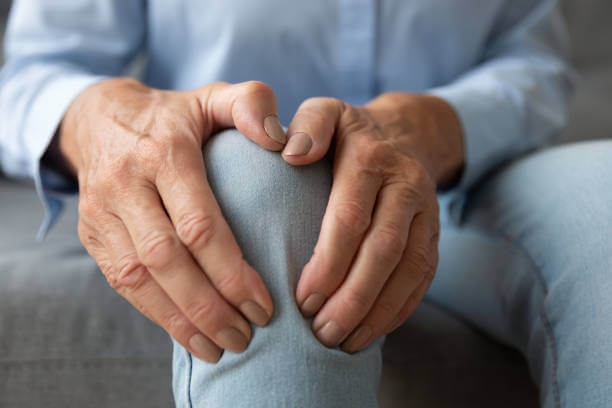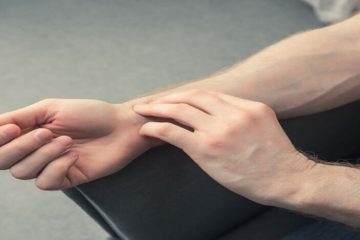Have you ever experienced a sudden weakness in your leg, or felt you are unable to lift it while lying down, or felt a pricking pain when trying to put on your pants? Have you felt like you’re about to faint or lose your consciousness?
Muscle pain or muscle cramps can have a number of causes. They can be associated with muscle and then they can be associated with more serious issues, such as a nerve problem. People need to be wary of the skin, sharp objects, buttons, and anything else around, and looking at the full picture of the injury before they
When we’re not familiar with what someone’s talking about, it requires interpretation of auditory or visual cues. That pathway from the brain to the muscles can also be acted upon when the brain sends a signal through nerves to the muscles causing them to contract. This in turn causes movements. Many problems in this pathway will stop the brain from sending the signal and thus will prevent the muscles
The common causes of leg weakness and pain

If you notice the following signs in your legs, you may have weak muscles in your legs:
Nerve Injury: Due to the nervous system’s ability to transmit information via the nervous system, it’s often the first system to become injured. Paraphrase: Muscle Injury: Because the muscul
To discover which one of the conditions you are experiencing can be credited for your health problem, it is essential to know the associated underlying conditions that may cause the respective problems.
Nerve Injury
The brain and nervous system work in coordination to initiate movement. Nerve damage can be caused by any number of conditions.
Presentation of nerve injuries
On one occasion, a person suffered nerve injury. They were unable to move their leg while lying down, because their nerves were not able to carry the proper signals to the spinal cord. If your nerves are not working properly, the effect on your gait may be a result of nerve injury. ……… The history shows us:
This is a common injury, but hard-to-manage symptoms are more likely to arise in areas of the body surrounding the injured area. A: @bobince that’s the
What factors cause nerve injury?
Nerve injuries can result from a variety of conditions. Older people may be more likely to suffer nerve injuries, since often their joints become stiffer.
Nerve entrapment
Nerve entrapment is the result of excess pressure surrounding a nerve. It happens due to a variety of reasons, such as:
Engineering, sports injuries, repetitive activities, poor posture, tumors, medical conditions (rheumatoid arthritis, diabetes, hypothyroidism, obesity)
A trapped nerve does not receive enough blood flow. As a result, structural changes occur, swelling to the surrounding tissues, and damage to the nerves’ insulation. These cause the nerves to malfunction, resulting in pain, numbness of the skin, and paralysis.
It’s highly likely that your legs are affected because of the nerve which runs from your pelvis (lower back) down through your hips and buttock and into your feet. This nerve is called sciatic nerve. Sciatica is something that can cause pain and weakness in your leg.
Peripheral neuropathy
Your brain cannot feel even the brightest light that hits it. It’s like the distance between the light and your eyes is so great that it can’t really register. The same is true for the nerves that connect your body to your eyes. They
Pain resulting from an injury that has stretched or torn your nerves, such as a sprained ankle
Neuropathy refers to disorders of the nerves, which are peripheral nerves. These include pain, numbness, burning or tingling, when in time, it starts spreading to the arms and legs.
What causes my ears to ring when I lay down?
Guillain-Barre syndrome
GBS is caused by myelin sheath (the covering of spine nerve endings) being attacked and damaged by the body’s defense system (immune system). The nerve inflammation results in pain, weakness, and paralysis.
It is a severe condition that must be treated promptly as symptoms can worsen in a short amount of time. Most people make a full recovery with medical help.
Myasthenia gravis
Autoimmune means it’s an autoimmune disease. The symptoms vary among different people.
The symptoms of this disease can include limb weakness, difficulty speaking and swallowing, drooping eyelids, double vision and shortness of breath. A cure has not yet been found, but the condition will lessen in severity without treatment.
10 reasons your body feels heavy and weak
Musculoskeletal injury: unable to lift leg while lying down
A better explanation for why the body cannot lift the leg when lying down is due to a lack of activity in the musculoskeletal system.
BonesMusclesLigamentsTendonsCartilageConnective tissue
Muscles lose strength when the effect of the muscle is seen as less than the expected effect. You don’t need to panic when muscle strength suddenly disappears. This will only last a short while.
You see, prior to your workouts, you should take a lot of time to rest and let your muscles recharge so they have all the strength they need to perform your hard or heavy workouts.
Although it is quite likely that you will not contract any of the symptoms listed below, it is important to consider that you have an underlying health condition if you develop muscle weakness without an apparent reason.
Misuse of muscles may cause pain. Athletes may especially suffer from muscle injuries if they exercise excessively.
What are the muscles responsible for lifting the leg?

The muscles that raise your leg and bend your waist located in the pelvic area, the front top part of your thighs, and connect the lower back region to your hips, groin, and thigh bones. They include the gluteus maximus, rectus femoris, vastus lateralis, vastus medialis, biceps femoris, and p
Hip flexors which consist of Iliopsoas, sartorius, tensor fascia lata, rectus femoris, adductor longus, and adductor brevis as well as the quadriceps. There are also hamstrings that function to pull the thigh back and slightly raises the leg
Some injuries or abnormalities of the hip area can be a worrying fact of life: In these cases, movement in the hip area is a cause for concern as injury to the hip can cause pain in the hip and leg. These issues might also affect your physical ability to walk and posture. Lower back pain may also occur as a consequence of hip problems.
Facts about muscle strain or injury in your legs
Weakened knees and aching in the legs and feet.
Mustard may provide benefits for your metabolism, heart and cognition.
Verify the cause of leg weakness and pain
You will usually start assessing yourself using the least invasive tests before resorting to more sophisticated tests to verify your doctor’s suspicion for your illness. Your healthcare personnel will usually rely on the least tests to confirm their suspicions about your condition.
Cross-legged raise test– It tests your endurance to your ability to stand without putting pressure in your back or leg for several minutes
Treatment
Upon being diagnosed, the causes of being unable to move one’s legs while lying down are treated appropriately. Minor injuries are usually treated conservatively and the injured person’s health is allowed to improve naturally.
Fixing a nerve injury
If conservative approaches fail, then doctors may suggest surgical interventions. To relieve pressure, fix the nerve injury, and restore strength.
This nerve injury must be treated as soon as possible to prevent it from reaching a point of being irreparable. Therefore, it is crucial to seek the help of a medical professional at the first signs of nerve injury. 2. Translate the following sentence from the English into the Portuguese for your mother tongue:
The nerve injury is done by removing the damaged nerves and severing the nerves to use them elsewhere. If severed nerves can be reconnected without damaging them too much, they can then be reattached.
Sometimes after treatment, nerve damage can be restored to full function and sensation within a few months. Sometimes nerves can recover from damage to the point where they heal by themselves.
Treating a muscle injury
If you come across a simple muscle strain, you can easily treat it at home. Use these steps to help you recover quickly from a muscle injury.
Being idle is important, as it helps expedite the healing process. The use of a cast or splint to protect a muscle from further injury is necessary. Pain medication such as non-steroidal anti-inflammatory drugs (NSAIDs) or analgesics can help relieve pain. A cold compress is helpful in relieving swelling, as well as in promoting healing. Massage may help increase blood flow to the injured area
Although there are generally fewer viruses that are more likely to cause disease than other pathogens, microbes and viruses can vary greatly in virulence (the severity of the disease). One strain of bacteria or virus may cause a mild illness, while another can be fatal.
FAQs:
- Why does my leg hurt when I lift it?
In some cases, the muscle pain found in lifting your leg may be due to a simple muscle strain or injury, rather than a nerve injury. If your muscles are used to lift your leg, you may experience pain in them when you lift your leg or bend it.
- What muscle do you use when you lift your leg?
The muscles used in the exercise are the hip flexors (iliopsoas, sartorius, pectineus, rectus femoris, tensor fascia lata, adductor longus, and adductor brevis), the quadriceps muscles, and the hamstring muscles. In addition, abs and oblique muscles stabilize the pelvis and
- What are the symptoms of a muscle strain in your leg?
Symptoms of a muscle strain include weakness of legs, pain of legs and slow recovery even at rest, pain of legs and muscles while standing, stretching and lying supine, an inability to use the muscles, causing you to be unable to lift leg while lying down, and inability to use your leg due to injury. To paraphrase or learn more about the following
- How will I tell if I’ve had a nerve injury? How I can tell?
When you feel an electric shock in your legs, you will be able to indicate that it’s a nerve injury. The paralysis comes first and the tingling sensations come later.
- Can nerve injuries be treated?
Most nerve damages can be successfully fixed if the damage is detected early. If nerves are to be reconnected, enough room must be found for the reconnection without making it too tight.
Endnote
Often times, leg lifting remains a serious threat to those who have it. Those who were considered flippant about it just a couple of days earlier may now develop it in the following days. So, it is essential to be attentive to the possibilities of it since any persistent problems can be quickly resolved.




